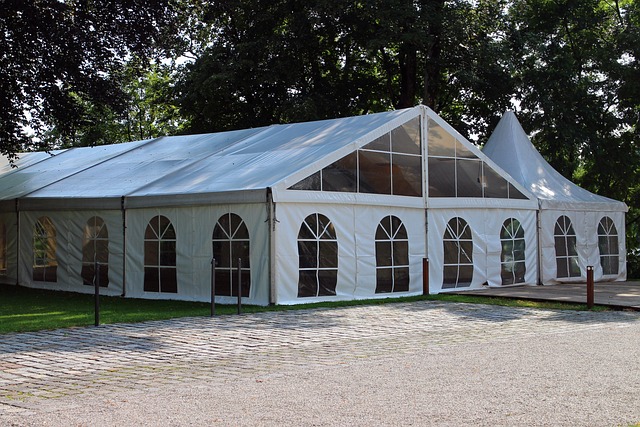Successful event planning for trade shows and expos requires understanding local business needs and market dynamics (Event Planning for Local Businesses). Through surveys, focus groups, and research, organizers identify challenges and aspirations, creating tailored agendas with workshops and networking sessions. Recognizing cultural nuances ensures an event atmosphere aligned with local preferences, fostering meaningful connections and partnerships. This strategic approach enhances ROI and leaves a lasting positive impact, attracting relevant attendees, exhibitors, and securing community support through partnerships with industry leaders and associations.
Trade shows and expos are powerful platforms for local businesses to connect, innovate, and grow. This comprehensive guide, tailored to event planning professionals and aspiring organizers, explores the art of creating impactful trade show experiences. From understanding local business needs and assessing market trends to designing engaging displays and effective execution, we delve into the key aspects of successful event planning. Discover strategies to optimize venue selection, manage budgets, and measure the profound impact of these events on local economies.
- Understanding Local Business Needs
- – Assessing the local business environment
- – Identifying key industries and sectors for event planning
Understanding Local Business Needs

Understanding local business needs is a crucial aspect of successful event planning, especially for trade shows and expos. These events provide a unique opportunity for local businesses to showcase their products, services, and innovations to a targeted audience. By gauging the specific requirements and goals of these enterprises, organizers can tailor the event experience to maximize engagement and return on investment.
Event planners should conduct thorough research to identify the challenges and aspirations of local businesses. This may involve surveys, focus groups, or one-on-one interviews with potential attendees. Such insights enable the creation of a tailored event agenda, featuring relevant workshops, panel discussions, and networking sessions. Additionally, understanding local preferences and cultural nuances ensures that the overall event atmosphere resonates with the target audience, fostering meaningful connections and business partnerships.
– Assessing the local business environment

The success of trade shows and expos heavily relies on understanding the local business landscape, a crucial aspect often overlooked in event planning. Event organizers must conduct thorough research to assess the market dynamics, industry trends, and competitive environments specific to the region. This involves identifying key players, emerging startups, and understanding consumer preferences unique to that area. By gauging local demand, supply levels, and potential challenges, organizers can tailor their events to attract relevant attendees and exhibitors.
For instance, an event planning team organizing a tech expo in a city known for its thriving startup ecosystem should focus on showcasing innovative local startups alongside international giants. This strategy aligns with the local business environment, caters to tech-savvy audiences, and fosters a sense of community, ultimately enhancing the overall event experience and impact.
– Identifying key industries and sectors for event planning

When planning a trade show or expo, identifying the key industries and sectors to target is crucial for event success. Event planners should consider local business needs and trends, focusing on sectors with high growth potential or significant economic impact in the region. Researching industry associations, local chamber of commerce data, and market analysis reports can provide valuable insights into which businesses are thriving and seeking new opportunities. By understanding these dynamics, organizers can tailor their events to attract relevant attendees and sponsors, ensuring a well-attended and engaging trade show.
For event planning focused on local businesses, it’s essential to partner with industry leaders and community organizations. Engaging with chambers of commerce, business associations, and local economic development groups can help secure support and buy-in from key stakeholders. These partnerships not only provide access to a network of potential participants but also ensure the event aligns with the needs and interests of the local business community, fostering a productive and meaningful exchange of ideas and resources.
Trade shows and expos are powerful tools for event planning, offering local businesses a platform to connect, innovate, and thrive. By understanding the unique needs of their communities and tailoring events accordingly, organizers can create meaningful experiences that drive economic growth and foster industry development. Event planning for local businesses is not just about setting up booths; it’s about building relationships, showcasing products and services, and positioning companies at the forefront of their sectors. With careful assessment and strategic execution, these events become vital components in the success and sustainability of local economies.
